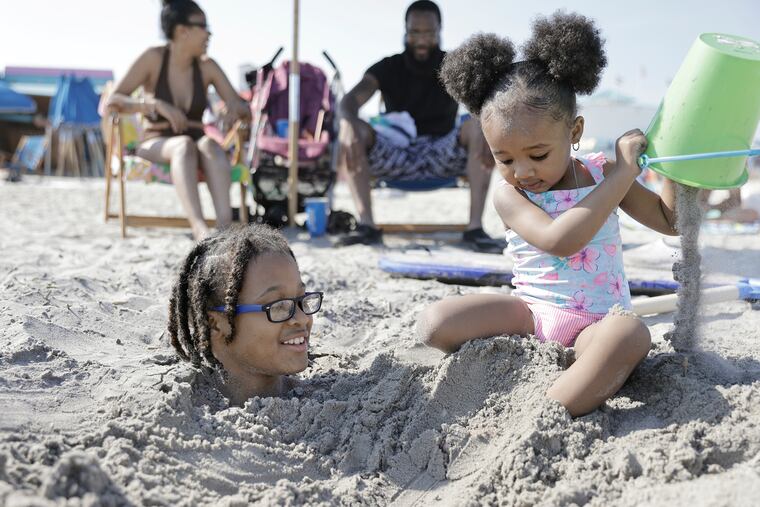5 self-care tips for parents who need a break this summer
We're well into the summer. How many parents out there are feeling burned out? Here are some tips to recharge.

For some families, summer means camp days, vacations, lazy afternoons, or trips to the pool.
But for many parents, it also means running on fumes as they juggle these activities on top of demanding work lives.
According to a recent report, 66% of working parents meet the criteria for parental burnout — the emotional exhaustion, detachment, feeling of isolation, and worthlessness caused by prolonged stress, said Gene Beresin, a professor of psychiatry at Harvard Medical School and executive director of the Clay Center for Young Healthy Minds.
The pandemic has compounded those feelings.
“We are stressed about the economic downturn, return-to-work mandates, child-care and day-care shortages, political unrest, and serious concerns about recent Supreme Court decisions, gun violence, and mass shootings,” Beresin said.
And it’s not just parents feeling this burden. The pandemic has made parents more aware of their kids’ mental-emotional wellness, said Mercedes Samudio of Orange County, Calif., a psychotherapist and founder of Shame-Proof Parenting, a practice that helps families develop healthy parent-child relationships.
“One of the things that I worked with a lot of parents on is how do we manage family mental health — not just our own individual,” she said.
To help parents navigate a tumultuous time, Samudio and Beresin offered advice on ways they can slow down, recharge, and encourage their kids to participate, too.
Encourage the entire family to unplug and have alone time.
Samudio says this practice can start once a day with families turning off their devices and opting for a relaxing activity. This introduces a new routine into the household and allows everyone, especially older kids, to figure out what it is they might want to do on their own, she said. “It’s a good practice so when you do need alone time, your kids actually understand,” Samudio said.
Beresin recommends putting aside 20 minutes before bed to read, relax, or listen to music. Set an alarm for a daily work break or create a plan to rotate responsibilities with a partner to give the other a break.
Get out of the house and appreciate nature.
Parents can explore their relationship with the outdoors by visiting parks, waterways, and beaches, Beresin said. “There is something to our relationship with the outdoors that makes us feel good, if we can allow ourselves a few minutes not to rush or be disturbed by our ring tones,” he said.
In general, getting out of the house can be restorative, he said. But running errands or commuting to work don’t count, he said. Instead, these should be more intentional efforts to step away from the daily slog of household tasks.
Beresin also recommends a night out once a week or every other week. Setting a cadence for these nights will help it become an expectation for everyone, he added, especially for kids. It also gives parents something to look forward to.
Exercise and practice mindfulness.
“Mindful meditation has proven to change the structure and function of the brain and is a fabulous way to promote relaxation while reducing anxiety, depression, and stress,” Beresin said. Now that the practice has gained in popularity, it’s also more easily available to learn in-person with an expert or online through sites like Headspace and Calm. “This is something you can do in any place whenever you need it,” he said. “Even a 10-minute meditation can change the course of your day.”
Spend time with people who care for you.
“We are not solo pilots or hermits — though with all our duties, it is easy to become isolated from other loved ones,” Beresin said. Schedule short visits or video chats with friends and family outside the home. To connect with those at home, Samudio and Beresin both recommend group activities, such as family dinners and game nights.
See a doctor regularly and consider professional help.
Beresin stressed the importance of seeing a primary-care physician annually to help maintain your general health and discuss ways to improve self-care. “Beyond exercise and diet, there are things you might ask about to improve your strength and resilience, such as physical therapy, occupational therapy, vision tests, even mindfulness classes,” he said.
Parents may also consider asking their primary-care physician for a mental health evaluation. According to the Centers for Disease Control and Prevention, one in five Americans will experience a mental illness in a given year. Over a lifetime, it rises to more than 50%.